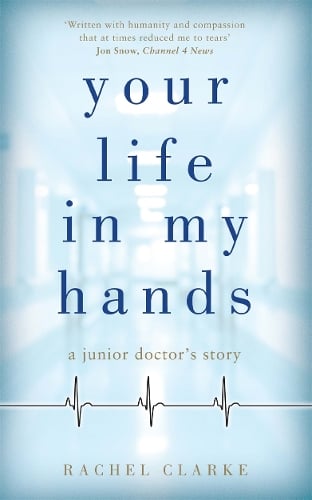Friday, 18 August 2017
The dampest squib - Shape of Training outcome
So the Shape of Training Steering Group have published their final report and I think it's fair to say it's a massive improvement on Professor Greenaway's disastrous first draft. My summary article in the BMJ from 2015 summarises the huge problems with the initial report and the rather dubious political influence upon the review that was taking place off the public record.
The most dangerous and misguided ideas from the initial report have unsurprisingly been shelved, one wonders how much the pressure of certain militant individuals and various representative trainee organisations influenced this rather obvious u-turn. The moving of full GMC registration has been deemed outside of the review's remit, while the certificate of completion of training (CCT) remains and is not to be replaced with a a certificate of specialty training (CST).
The only real change is the introduction of post CST 'credentialing' and in reality credentialing is here already in practice, even if not by name. The devil will be in the detail of how exactly credentialing is defined and setup in the future. It has the potential to be positive if it can be used as a lever to ensure that post CST training achieves certain outcomes.
Overall the bottom line is that the Shape of Training represents a humungus missed opportunity in terms of assessing the current problems in UK medical training and addressing them. I would argue that the deep entrenched bias in the way in which the review was conducted involving the hidden political meddling meant this review never objectively analysed the current state of UK training, and as a result it has largely been a total waste of time and money. The government wanted to dumb down training standards and make training cheaper, so the real quality issues in current training were totally ignored and as a result, the review has suggested little that will make any positive contribution to training quality.
The way in which training is regulated and funded need sensible reform urgently. It is utterly crazy that some trainees get really substandard training at the expense of being abused as rota fodder by Trusts. The system needs to be more responsive with homeostatic mechanisms in place which result in poor training posts being canned. The big elephant in the room here is NHS funding. In order to improve training quality trainees need to be far more supernumerary in their role, so that they can be free to get the best training exposure and so that they can be pulled instantly if their training needs are not being met. Sadly as things stand too many poor training posts exist and the system is not responsive enough to eradicate these failures, and the Shape of Training review completely missed the point.
Tuesday, 18 July 2017
Breathtaking incompetence - a monumental shambles in their hands
I've been reading Rachel Clarke's book over the last few evenings and this is what has inspired me to ramble on the blog today. The mixture of humanity, sharp analysis and reasoned argument makes Rachel's excellent book absolutely essential for anyone interested in medicine, the NHS or healthcare. The way in which the government have ignored precisely this kind of incisive intelligence sums up why we are in a right mess today.
It's worth going back to square one and analysing just how fast so many situations on the NHS have deteriorated. Generally before the Conservatives took power in 2010, many of the crises which exist today did not exist. The disastrous recruitment situation regarding junior doctors, consultants, nurses, physios, OTs and GPs did not exist pre 2010. The number of small GP practices closing has rocketed since 2010. The social care crisis has been a recent phenomenon in the context of huge real terms funding cuts. The deterioration in AE waits and elective treatment performances have all happened post 2010.
Certainly nothing was perfect pre 2010 and disasters did happen, however it is fair to say that the system wide failure that we see today definitely did not exist in that period before the Conservatives took power in 2010. This is a point which Rachel Clarke makes eloquently in her book, despite all the hot air spewing forth from Jeremy Hunt's orifices, nothing solid has actually been done that has improved the reality of the care on the front line of the NHS. All we have seen from Hunt is smoke, mirrors, propaganda and dangerous arrogance.
Nowhere is this better demonstrated than in junior doctor recruitment and retention. Things were steadily declining from around 2012 onward, then Jeremy Hunt bullied and imposed a contract upon doctors, unsurprisingly things have only got worse as a result. Current recruitment data is dire, almost one in 5 paediatric jobs are unfilled and specialities that were previously massively oversubscribed cannot even fill their training numbers. The ins and outs of the contract debate are complex, Rachel's book portrays a very accurate picture of events. The imposition of a contract remains a great example of Hunt's overt ineptitude and arrogance in one, it can never make sense to force something upon ones employees, particularly when recruitment and retention was in such a dire state in the first place.
There has been too much ineptitude from the likes of Hunt, the Department of Health and their minion NHS England to summarise it all without writing several volumes of dense text. However it remains clear that until we have some candour and apologies from the dictators at the top of this authoritarian shambles then things will only continue to get worse. Fundamentally leadership is about listening and the current leaders at the top of the NHS have their earplugs in. The bottom line is the NHS is crumbling because our political system has failed. You get what you pay for in life and there are no magic solutions, meaning promising the hollow gimmick of '7 day services' without any funding or staffing to enable it can only result in a dismal own goal. Until our leaders are honest about what can be sustained with skeletal funding then we'll continue to see the service crumble and staff flee for greener pastures elsewhere. Rachel Clarke has hit the nail on the head and Jeremy Hunt should be deeply ashamed of himself, alas for that to occur he would have to exhibit a degree of insight, something he has not demonstrated to this day.
Friday, 14 April 2017
The BMJ talks a good talk.....
"Although definitions and guidance about what to declare are useful, the real challenge facing individual clinicians and employers is to find a way to declare interests in a practical and meaningful way. "
I couldn't agree more and the BMJ has often written some very coherent stuff on conflicts of interest. Therefore one would expect the BMJ to actually apply the same rules to itself and the studies it chooses to publish. Sadly when applying the rules to the Freemantle 2015 study, the BMJ has been found to be sadly lacking.
Since the publication of the Freemantle 2015 study in the BMJ much evidence has emerged. It is now apparent that the commissioning of the study came directly out of NHS England's 7 day service work and involved NHS England's senior leadership including Simon Stevens. The private firm Deloitte were also involved. None of this was declared by the authors, and the evidence demonstrates that Bruce Keogh was fully aware of this situation and the fact that the study had not simply come from just his request, but had involved the senior leadership of NHS England including Simon Stevens. Notably the DH were also intimately involved in this process and kept very well up to date on the 'research' on which Jeremy Hunt later relied, labelling it 'independent'.
The BMJ has still not acted to prevent readers from being misled by the overt failure of the Freemantle authors to adequately declare who actually commissioned the study. The full political context to the study's commissioning is vital in its interpretation. This failure is a clear breach of the BMJ's guidance to authors, this being that of the ICMJE. Whether issuing an adequate erratum or retracting the study, the BMJ should act and their failure to do so smacks of hypocrisy, they frequently hold others to such high standards but when dealing with the Freemantle authors they appear to be ignoring their own rules.
Monday, 13 March 2017
My thoughts on physician associates et al
I read the latest edition of JTO with interest and noted the comments
from the Editor regarding 'physician associates', as well as the feature by
Anandu Nanu. Certainly it is possible that other allied healthcare
professionals can be used to provide valuable service and this can potentially
improve the training of junior doctors; perhaps medical support workers can be
more cost effective and useful in this regard than physician associates, as
much potential junior doctor training time is wasted doing many lowly skilled
bureaucratic tasks.
The significant underlying barriers to improving training remain
unaddressed by the introduction of more allied staff however. The
fundamental root problems include government enforced austerity, the resultant
widespread NHS deficits, huge budget cuts to HEE and an unfunded service
expansion being pushed amidst a drive for an utterly unachieved £22bn of
'efficiency savings'1-4. Then combine this government ineptitude with
a perfect storm in terms of an unpopular inadequate new junior doctor contract
which is only catalysing a marked deterioration in junior doctor recruitment
and retention5,6.
The overall result is an inevitable deterioration of the quality of
surgical training.
Training can only be improved with adequate government investment which
may then both address the dire recruitment and retention of staff, as well as
increasing staffing levels to absorb the less useful service provision
currently performed by junior doctors.
In the current financial and political environment, the introduction of
more allied health professionals can only be of benefit to training if they are
in addition to the current workforce. In
the current environment it is far more likely that junior doctors will be
replaced, rather than added to by these new staff; and this can potentially
harm training further by increasing the burden on the remaining doctors. Fundamentally without adequate funding,
training quality is only going one way.
1. CBS. Written evidence to the
Public Accounts Committee by Cass Business School. February 18th 2016.
2. PAC. Managing the supply of NHS clinical staff in
England. Fortieth Report of Session
2015–16. 27th April 2016 2016.
3. Dunn P MH, Murray R. Deficits in the NHS. The King's Fund. 2016;http://www.kingsfund.org.uk/sites/files/kf/field/field_publication_file/Deficits_in_the_NHS_Kings_Fund_July_2016_1.pdf.
4. Campbell D. Secret documents reveal official concerns
over 'seven-day NHS' plans. Guardian. 2016;https://www.theguardian.com/society/2016/aug/22/secret-documents-reveal-official-concerns-over-seven-day-nhs-plans.
5. Campbell D. Almost half of junior doctors reject NHS
career after foundation training. Guardian.
2015;http://www.theguardian.com/society/2015/dec/04/almost-half-of-junior-doctors-left-nhs-after-foundation-training.
6. Dean b. The new junior
doctors' contract will create a staffing crisis in the worst possible places. Telegraph. 2016 2016;http://www.telegraph.co.uk/news/2016/04/28/the-new-junior-doctors-contract-will-create-a-staffing-crisis-in/.
Subscribe to:
Comments (Atom)



